13 Mar 2024
Institute of Biomedical Engineering holds Open Day for secondary school students
IBME faculty and researchers welcomed secondary state school students from Oxfordshire and South-East England for a day of Engineering and STEM focused lectures and demonstrations
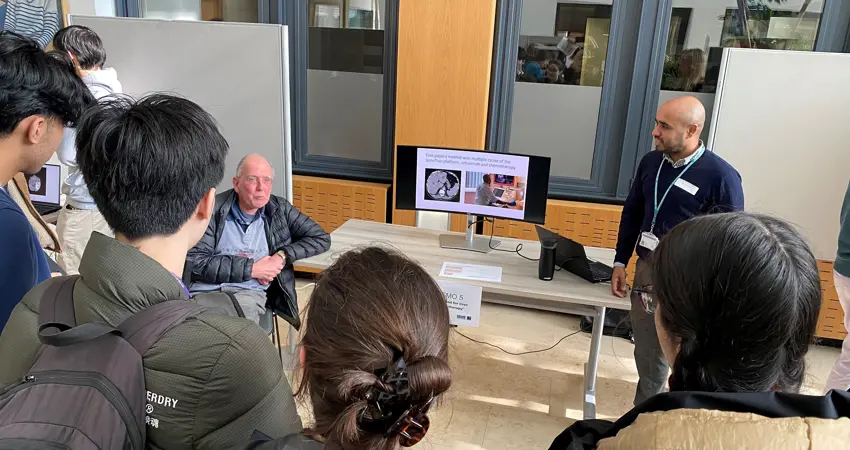
Mr Jeffrey Rubasingham, Clinical Oncology Registrar, and a patient representative during a demo on Ultrasound for liver tumour therapy
On Friday the 8th of March, the Institute of Biomedical Engineering at Oxford (IBME) held an Open Day with mini-seminars and demonstrations covering the wide-ranging impactful work performed within its research clusters. Over 60 students in year 12 or 13 from 16 different state schools across Oxford, the Midlands, and the Southeast attended the event. Students were inspired by IBME researchers describing the development and application of new healthcare technologies. Topics included organ perfusion, tissue engineering, ultrasound in therapy, neuroscience and women’s health research, machine learning in image and health data analysis, soft electronics, and brain implant control.
The IBME Open Day for schools has taken place since 2017 as part of the IBME science outreach activities programme. The purpose of the event is to help students develop an understanding of what constitutes Biomedical Engineering, the opportunities it offers to students at Oxford University, how students may go about applying to Oxford and the help available to support such application. Talks and demonstrations cover the types of research questions that can be answered by biomedical research methods, and to highlight the various disciplines represented in typical IBME research teams, including biologists, chemists, physicists, and clinicians.
Professor Constantin Coussios, Director of the IBME, opened the day with a personal story about career transformation from aerospace to biomedical engineering. He described the many life-saving technologies developed in IBME laboratories, tested in clinical trials, and adopted in hospitals, that have already been adopted in healthcare settings and saved the lives of many patients.
“It was very dynamic and appealing, it showed me an increasingly range of things in the field and how they can be used to help and the process to achieve an impact in society.”
Student participant
Seven demonstrations showcased current research project from all IBME research clusters and inspired students with stories and hands-on experiences. While the IBME team to sought to inspire students and assist them with their career choices, feedback shared by students attending the event suggests that the activities also helped correct commonly held misperceptions about biomedical engineering.
One student explained, “I was worried that biomedical engineering would require a lot of physics which is not my best subject. Today helped me understand that this is only a part, which makes biomedical engineering a real choice alongside medicine for me.”
Students also described that they were inspired by the delivery of university lectures based on the mini-seminars given by IBME faculty and staff. The structured and easy to understand approach of the presentations stood out and helped students memorise the key points. Professor Nair’s talk on collagen scaffolds received much praise. The inclusion of the patient experience by clinical oncology registrar, Mr Jeffrey Rubasingham (pictured above), helped bring the impacts of biomedical engineering to life through relatable stories.
"It really highlighted the real-life impact of biomedical engineering."
One student summarised their experience at the end of the event with the statement, “The penultimate talk about collagen scaffolding was particularly fantastic — she spoke so well, her presentation was so well organised, it was logical and easy to understand. And so interesting! I also loved the ultrasound to cure liver cancer demo — I was amazed to see the patient sat in front of me. It really highlighted the real-life impact of biomedical engineering. Overall, I had a great time!”
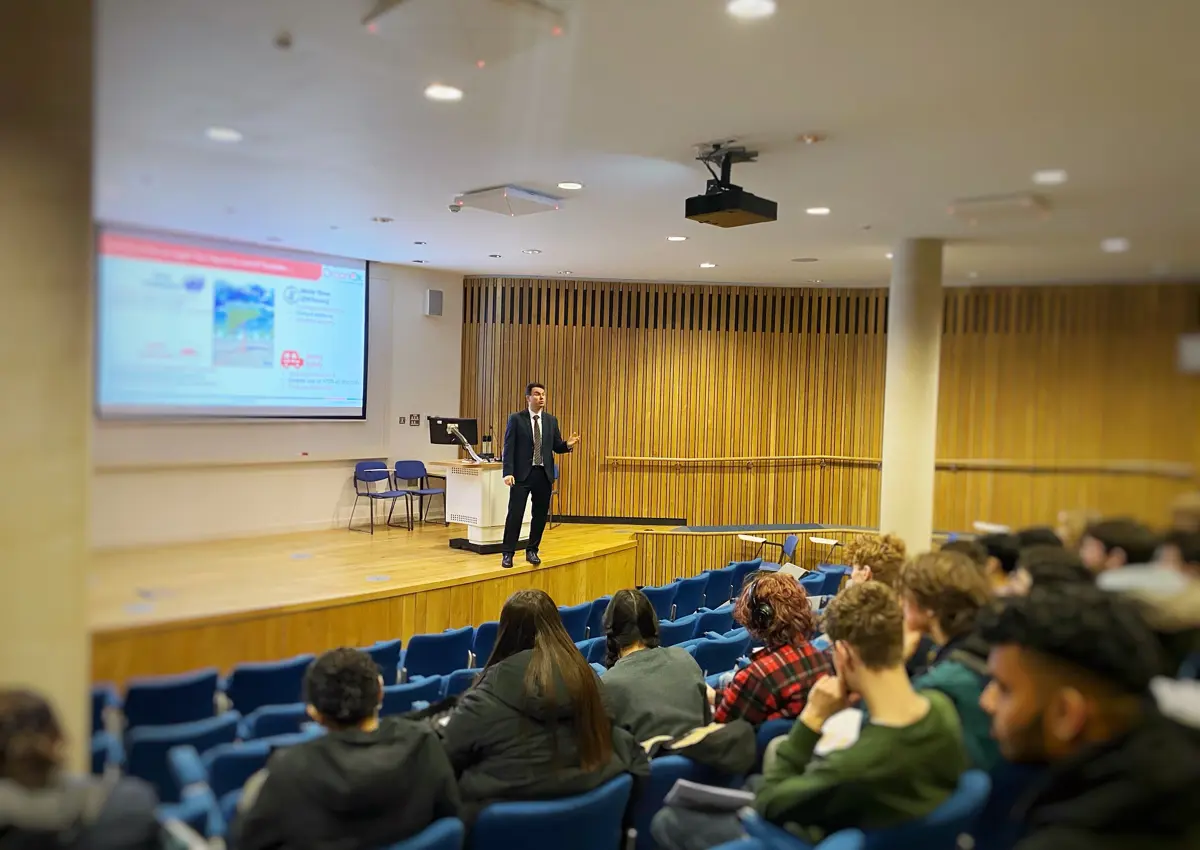
IBME Director, Professor Coussios during his talk titled, “Biomedical Engineering – Bridging technological innovation, medicine and science entrepreneurship.”
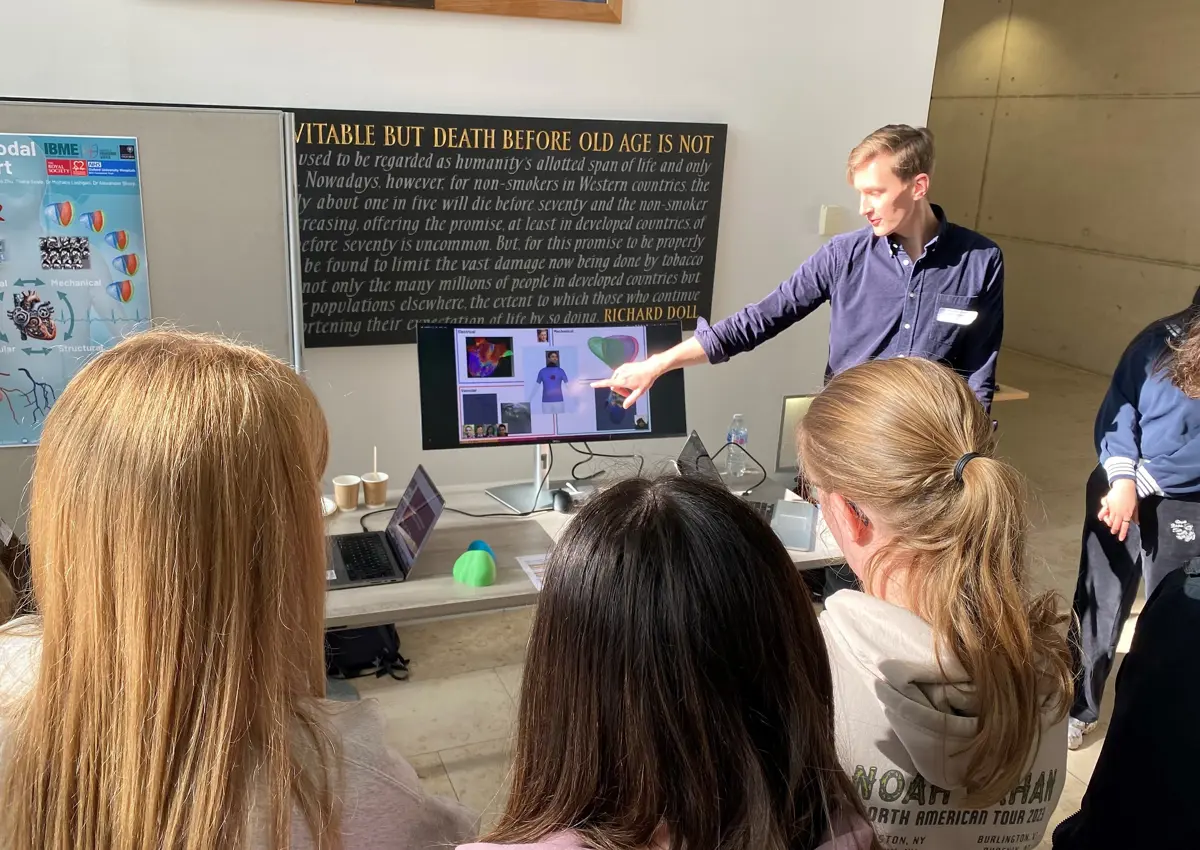
Dr Abhirup Bannerjee’s team during their demonstration titled, “Multimodal Digital Heart”.
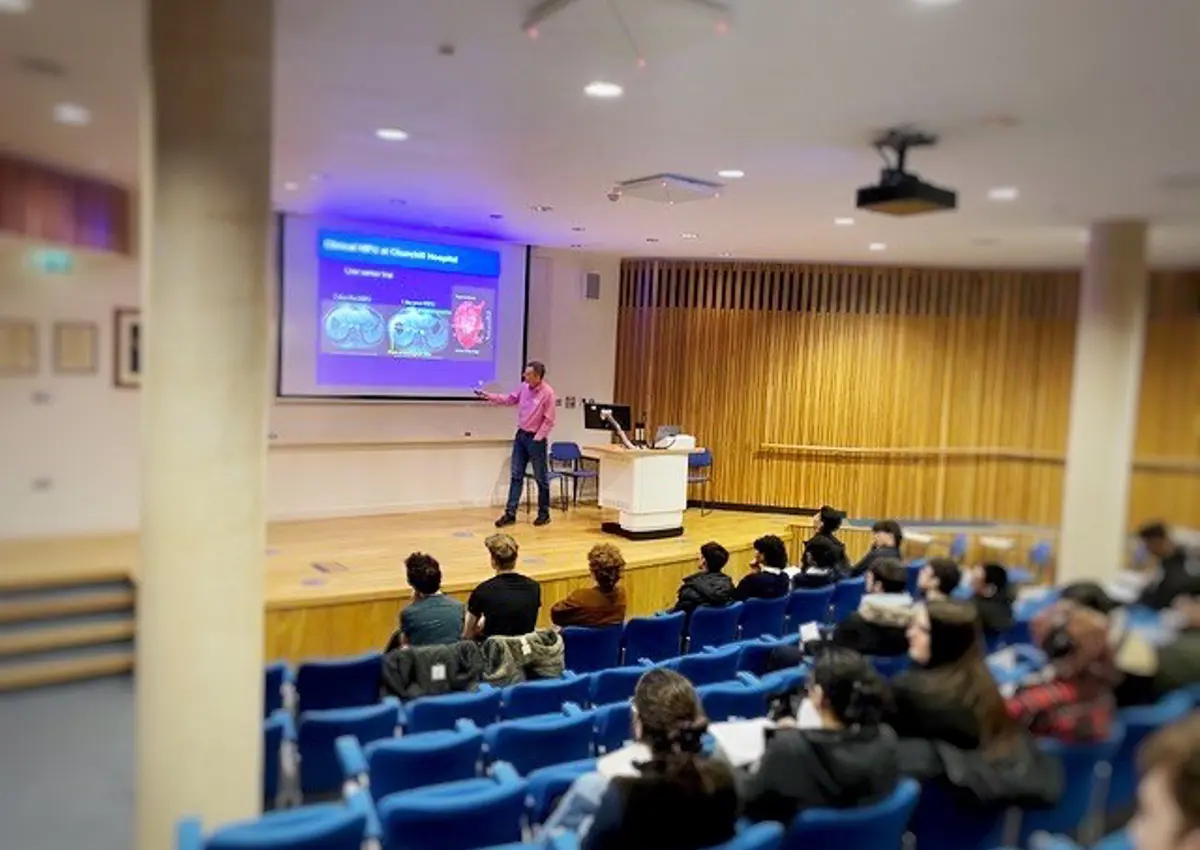
Professor Robin Cleveland during his lecture titled, “Healing with sound: the physics of therapeutic ultrasound.”
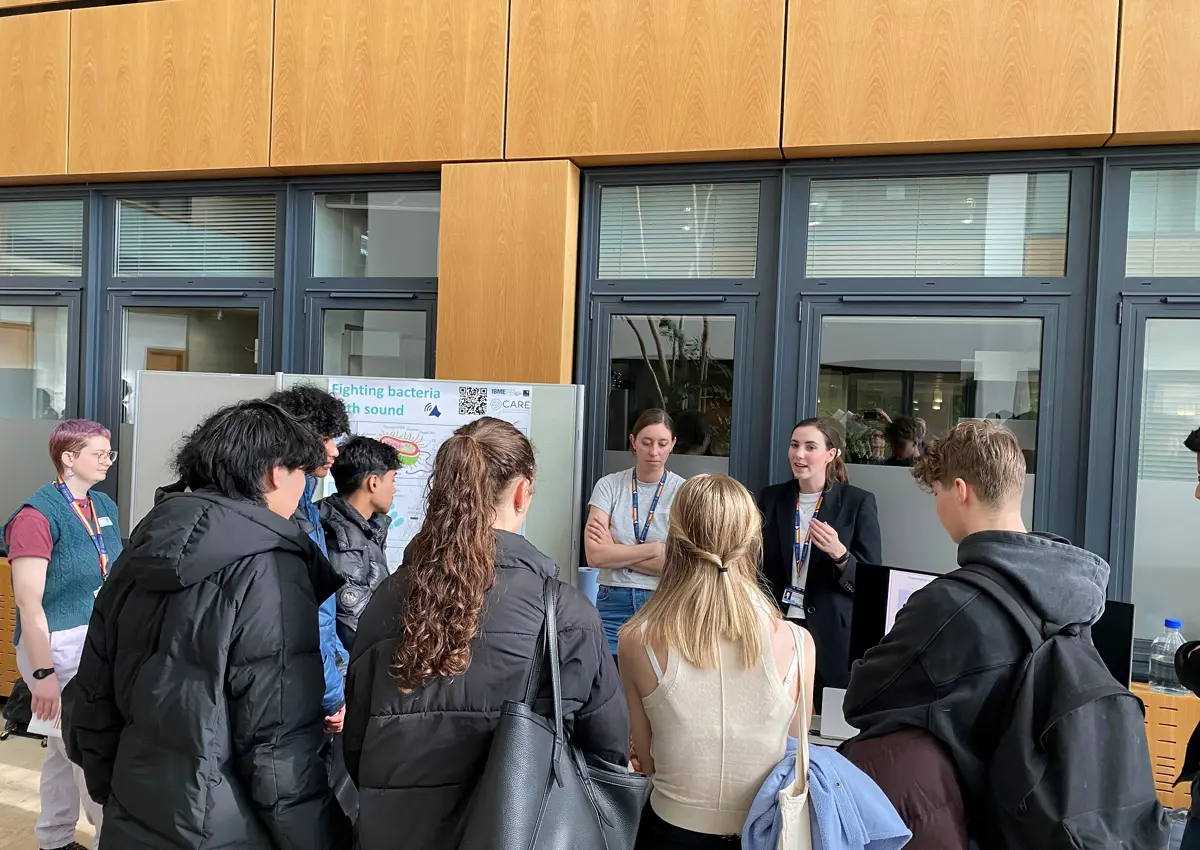
Dr Sara Keller and Dr Veerle Brans, IBME post-doctoral researchers during their demonstration titled, “Ultrasound for Bio-film Disruption”.




